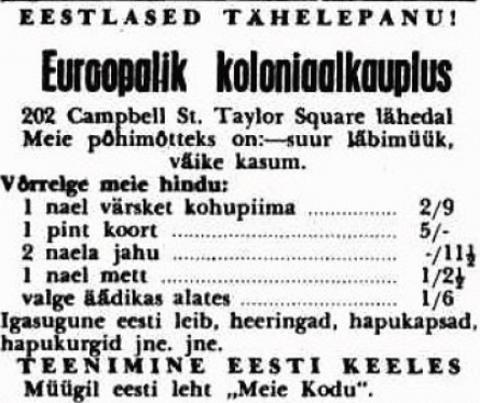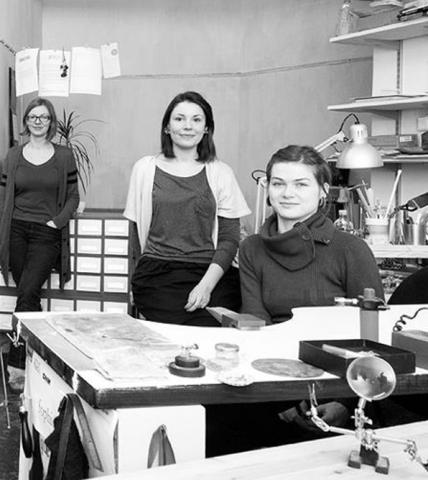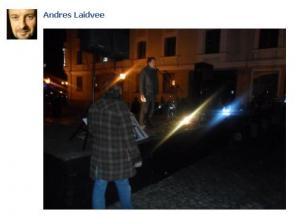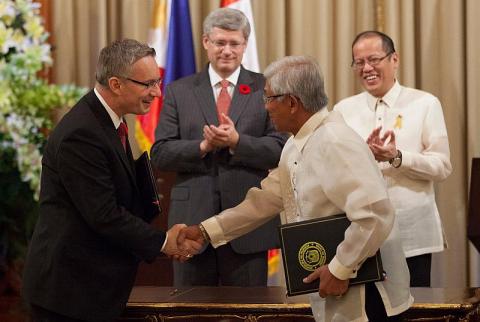02/07/2009
Today I'd like to briefly touch upon two fundamental, very fundamental changes in the assumptions of European security architecture and Europe's relations with its neighbors to the East. One is the Georgian-Russian War, the second, the second the recent gas cut-off to Ukraine. The third fundamental change, a new U.S. President with a new foreign policy team and new priorities is something others here are far better qualified to discuss than I. My primary message on these two points is that before we proceed to deal with the broader international aspects of these issues both the EU and NATO need to get their own houses in order.
After the dust from the guns of August has settled, we are left with one fundamental change: minimally the collapse of the post-1991 settlement, and more broadly the principles of the CSCE Helsinki Final Act of 1975: no use of force to change national borders, a principle signed on by all the countries of Europe and/or their legal successor states.
The collapse of this order represents a paradigm shift in European security equivalent to the end of the Cold War in 1989-91. No longer can we assume that international aggression, (as opposed to the civil wars of the Balkans) is excluded as a possibility in Europe. This assumption has underpinned Western security policy ever since the middle nineties. What, after all, was it that allowed us to spend the second half of the nineties in the debate spurred by Manfred Wörner and taken up by Richard Lugar under the broad headline „Out of area or out of business''? The idea then was that since there is no need for NATO to be concerned about international conflict in Europe, then NATO's raison d'etre can be sustained only by a readiness to go beyond its borders.
The anti-enlargement camp in the West, perhaps most eloquently represented by Michael Mandelbaum, similarly predicated their arguments against taking former Warsaw Pact nations into NATO on the same assumption of the end of conflict in Europe: the obsolesence of the Alliance in the new era of Kantian Perpetual Peace in Europe.
With aggression, invasion, etc excluded, the optimal form for security in Europe was the forum offered by the OSCE, the renamed CSCE.
The assumptions of the post-1991 settlement had a number of other implications: no stationing of pre-positioning in new member states, no contingency planning, which largely still hold, even though the paradigm has changed.
After the Georgian-Russian War and ultimate acquience of the results of that war by the European Union in its decision to declare a tabula rasa or alternatively a status quo ante means that we have
accepted that the paradigm has changed, and that we are willing to proceed on new principles that assume that international borders in Europe can be changed by unilateral military aggression.
The question then is, how to proceed. The liberal democracies of the European Union and NATO have not themselves come up with a model to deal with this new reality. We have all become adherents of Hans Vaihinger's Philosophie des Als Ob, philosophy of as if. We act as if nothing happened, nothing has changed. There is no need to do anything differently.
Russia on its part has moved beyond the paradigm, not only by changing it but also by proposing a new security architecture to replace the OSCE and other structures because „the old one clearly does not work". The argument in brief is that the Georgian-Russian War shows that the existing arrangements failed. True they did, though the question is why? Who used force to change existing borders?
When my younger daughter was a four year old she purposefully broke a toy because she wanted a bigger and different one. Should a parent accept this and buy a new toy is a matter of taste, but when a party purposefully breaks a fundamental principle of European security and then uses this as an argument for the need for a new security architecture, one might be forgiven for finding it a bit disingenuous.
The other issue we in the Alliance and the EU have to ask is what is this structure that is supposed to replace the non-functioning OSCE?
Is it the OSCE minus ODHIR, the election-monitoring arm of the OSCE that reports on whether or not member state elections are free and fair? Is that the only difference?
But there is a far more basic issue, and this has to do with the fundamental assumptions of any functioning security concept: shared values. The existence of that pesky institution ODHIR within the OSCE is actually a bow to the supposedly common values of the OSCE: electoral democracy, freedom of expression and association, etc.
I read in a recent open letter to President Obama that we should take President Medvedev at his word on the new security structure. Many of us, however, have a problem with which words? Five months ago the President of Russia declared the former soviet republics on its borders as region of privileged interests for Russia. It is troubling that even people in high policy making positions in the West accept that the democratic choice of a country that happened once to have been a part of the Soviet Union matters less than the privileged interests of its neighbor. Is respect for democratic choice something only for those already in the club?
It seems to me that a security architecture of Europe based on this notion of privileged interests so egregiously violates the fundamental values and assumptions of liberal democracy that binds the West together, that we have to approach such new structures with extreme caution. First we need to return to the core mission of NATO, the defense of the alliance, and only after that begin to discuss other, new structures.
The second fundamental change in the security of Europe became apparent in the just-ended gas cut-off to Ukraine by the state run company Gazprom.
After the first large scale use of manipulation of gas supply by a state for foreign policy ends, also in Ukraine in 2006, we were assured this was one-off. Alas we now have a twice-off.
The issue for us in the EU and NATO is not how this came about, but rather how to avoid a recurrence. To put it differently, it is clear that Energy security is one of the great challenges we face in Europe today, a challenge where assurances can no longer be taken seriously.
The solution clearly is diversification of supply, which ultimately requires, I shall argue, major reforms and infrastructure development within the EU. Nabucco, Southstream, Nordstream are the three solutions we are offered for supply diversification. The future of Nabucco was for a long time unclear, but I am heartened by growing understanding within EU of the need to proceed on the project.
That leaves Nordstream and Southstream. In the interests of time I shan't get into the specifics of these projects and rather concentrate on European policy in this regard. Though in passing I should say that the sensitivities of countries such as mine about this project largely have to do A) environmental impact concerns; B) the use of EU funds to build Nordstream when it would be many times cheaper to build an overland pipeline, i.e. Yamal II. And finally C) the secretive way in which the deal was reached by a head of government in Europe who then after losing an election offered a billion euro loan guarantee to the company for which he went to work right after leaving office. We have a word for that, but that this is not an ethics seminar. But it does colour public perceptions, no small matter in democratic countries.
The question for both Southstream and Nordstream is really whether we should appropriate large EU structural funds for a project that fundamentally violates EU competition rules, in American English, EU anti-trust legislation. The technical term in Eurospeak is ..bundling", i.e. when ownership of supply and distribution is one and the same. Recently the EU fined Microsoft for a second time 1 Billion Euros or almost a 1.4 billion US dollars bundling. In this case for including the internet programme Explorer as an obligatory component when buying the Windows operating system.
In the case of Nordstream and Southstream, both supply and distribution networks are property of state-owned Gasprom. In joining the EU, new members were required to separate ownership of domestic energy supply and distribution networks. Now we are told that bundling gas supply and distribution is a completely different case from Microsoft's illegal bundling of operating system and internet programme. I agree, it is different. If I buy Windows I can always chose to use Firefox instead. Indeed, I don't even have to buy Windows, I can use Linux or Macintosh as my operating system.
When it comes to gas, I have no choice. I must use the distribution network of the supplier. Now even this would be no problem except for the fact that the supplier is a monopoly, a company owned and in fact run by a non-EU government that has explicitly stated even on its foreign ministry homepage that it considers energy supply a tool of foreign policy and that moreover is, as early January showed, quite willing to withold energy as a political instrument.
In short, we are faced with the following: EU funding is sought for a project that by its nature violates EU competition policy with a country that is willing to use energy as a foreign policy tool.
In order to face this security challenge adequately, the EU needs to get its own energy house in order. What is sauce for the goose is sauce for the gander: if we take on Microsoft on bundling/anti-trust issues, we must perforce to the same with Gasprom. The latter implies liberalization of energy markets in the EU, a far more daunting task than fining a U.S. software company. But if we place the rule of law at the heart of the EU then we have no choice.
There are many security policy challenges today. The two I just raised differ from others such as terrorism, non-proliferation, the Middle East in that are new to us and that they in fact must be addressed by NATO and the EU on our own before we move beyond. Indeed, I suggest that both in the case of any new ..security arrangement" as well as any decision on energy supply to Europe, we need first, within NATO and the EU decide what we wish to do. Not unilaterally pursue as individual countries that actually require the participation and consent of other Allies and Member States and in the case of energy requires a serious look at our own legislation.
We can and must revisit the assumptions held in the past 17 years about the use of military force in Europe and we must follow our own legislation to ensure that we not become politically hostage to energy supplied by an outside power. Though the solutions interact with the outside world, they are in fact internal issues: NATO itself must deal with the new paradigm of in area armed aggression and the EU itself must ensure its legislation is applies uniformly to ensure the security and well-being of its citizen.
Speech at the 45th Munich Security Conference (2)
Kuumad uudised | 09 Feb 2009 | EEEWR
Viimased kommentaarid
Kommentaarid on kirjutatud EWR lugejate poolt. Nende sisu ei pruugi ühtida EWR toimetuse seisukohtadega.
You must be very easily surprised.
p.s. the 2 topics arent even remotely linked boozo.
p.s. the 2 topics arent even remotely linked boozo.
It is highly surprising that the author in seeing the danger in the proposed "new European security architecture" has without hesitation accepted that the relocation of the Estonian state border by the Soviet Union was not an act of war crimes - to be made good by the Russian Federation.
Kuumad uudised
TRENDING
























